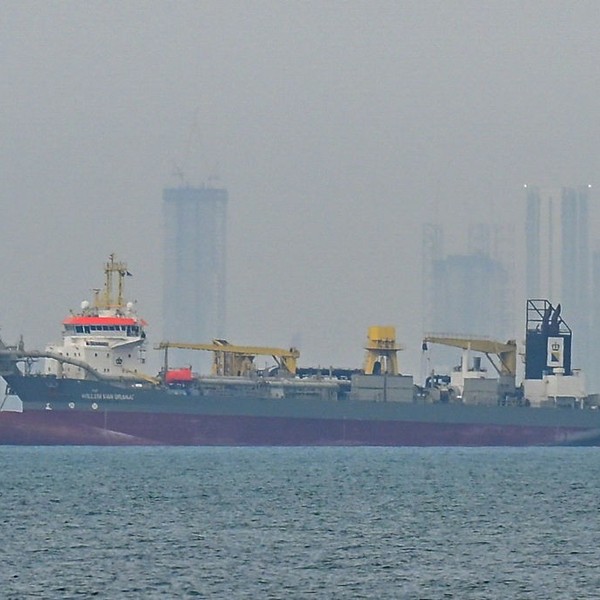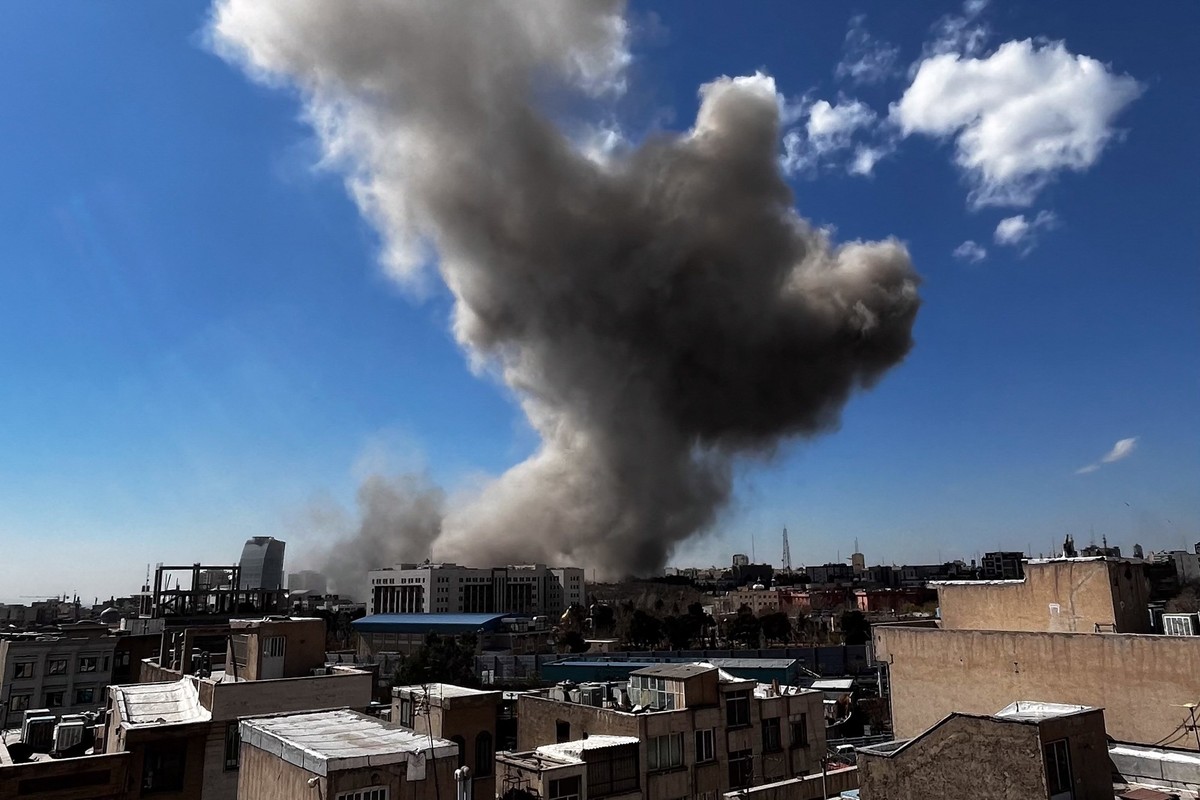OPINION — As President Joseph Biden enters a key election year in which many national polls show him trailing former President Donald Trump - his administration struggles with a complicated ‘multipolar’ world.
Ongoing challenges include the war in Ukraine, the Israel-Hamas war, Iran’s heightened regional aggression, inflationary economies, rapid advances in novel technologies and their national security implications, continued supply-chain disruptions, massive regional migrations/humanitarian crises and their disruptive effects, and our adversaries’ sustained approaches to asymmetric and traditional warfare.
President Biden has struggled to unite a deeply-divided America, and his vision – that this generation’s struggle against autocracy is the signature foreign-policy challenge of our time – has not fully taken root domestically or in the ‘global south.’ On the contrary, our adversaries have successfully embraced and propagated alternative narratives, e.g., that America is in decline, and that the global south is rising, and that ‘multipolarity’ is the new norm in an increasingly complex world.
Our key adversaries, such as Russia’s Vladimir Putin, Iran’s Ebrahim Raisi, North Korea’s Kim Jong-un, and China’s Xi Jinping, remain even more formidable and problematic than they were a year ago. They can collectively best be understood by applying a moniker of the ‘Three R’s:’ ruthless, rational, and resilient. There is no room for wishful thinking or magical realism here. These adversaries continue to believe that time and history – and their very legitimacy and governance outcomes - are on their side. A strong argument can be made that – for the time being – they are ‘winning,’ and America and its allies are faltering.
Russia
Putin ended the year with swagger at his annual news conference, in which he claimed that Russia would fight on, defeat Ukraine and its western backers, and achieve its military goals. His recent foreign trips – to Kyrgyzstan, China, UAE, Saudi Arabia, and Kazakhstan – and meetings with key interlocutors, such as MBS, Xi Jinping, Kim Jong-un, and most recently, India’s Foreign Minister Jaishankar, reveal not a pariah, but a confident, vigorous statesman, little bothered by views of him in the West, and showing no residue of political weakness after the June 2023 mutiny by his ill-fated colleague Yevgeny Prigozhin.
It's not just for the President anymore. Are you getting your daily national security briefing? Subscriber+Members have exclusive access to the Open Source Collection Daily Brief, keeping you up to date on global events impacting national security. It pays to be a Subscriber+Member.
While Putin’s 2022 invasion of Ukraine had been labeled a colossal intelligence failure, he sees it – as do most Russians according to recent polls – otherwise, as a conflict in which Russia stood up for its values, history and culture against a hostile and destructive group of NATO countries, led by its ‘Main Enemy,’ America.
The Russian economy has weathered the worst of the sanctions, along with a brain drain of nearly 1 million young, talented Russians, and the Ukrainian counteroffensive has not achieved its hoped-for results.
Putin continues to hold the Ukraine and the West hostage, with nuclear threats, brutal military tactics (supported by a contemporary ‘Axis of Evil’ with the equally ruthless Iranian and North Korean regimes), ‘hostage diplomacy’ (note Russia’s unlawful and wrongful detention of WSJ reporter Evan Gershkovich, Paul Whelan, Marc Fogel and Alsu Kurmasheva), and unwillingness to come to the negotiating table —- except on his terms. Putin has always exhibited a remarkable, cold-blooded patience – honed early during his life as a KGB officer – to thereby achieve his and Russia’s strategic goals.
China
Xi fully deserves the title of being the most formidable leader in the world today. His whirlwind of diplomatic successes during 2023 – adding new nations to BRICS; meetings with EU leaders and numerous American political and business leaders; closer relations with Russia; and the brokering of the Iran-Saudi diplomatic agreement – highlight his visibility and strategic depth.
While he continues to progress towards his goals of the China Dream and the Great Rejuvenation of the Chinese People, domestic challenges –a sluggish economy with lower than projected growth rates, and China’s looming middle-income trap – as well as overseas challenges such as Taiwan and China’s strategic competition with America, endure.
Xi has shown assertiveness in securing even more centralized power (as ‘the core’) following his third term as China’s President in 2022, and China has, under Xi, tightened its domestic security laws and behaved more aggressively towards Taiwan and the Philippines.
Many have tended to see Xi as rigid and purely ideological. But such a view misses his flexibility and ability to shift course. Xi has certainly done so during his recent AIPEC meeting with President Biden, changing his language and tone in order to reduce tension. In his speech – which received a standing ovation - to American CEOs and business leaders, Xi spoke of the ties that bind America and China, of shared struggles, people to people connections, and the singular importance of the US-China relationship.
Subscriber+Members have a higher level of access to Cipher Brief Expert Perspectives and get exclusive access to The Dead Drop, the best national security gossip publication, if we do say so ourselves. Find out what you’re missing. Upgrade your access to Subscriber+ now.
A key question remains, even more salient given Taiwan’s January 2024 presidential election: will Xi invade Taiwan?
Xi would not make such a decision cavalierly. But he has said that reunification will occur —- peacefully or otherwise. Barring the crossing of a red line by Taiwan (e.g., a declaration independence), a more likely scenario involves China’s further isolation of Taiwan, ‘squeezing the oxygen out of the room,’ utilizing a whole of government approach, including increased air force patrols, naval blockade, espionage, cyber-attacks, PRC Coast Guard patrols, economic pressure, diplomacy, and political pressure. While Russia’s initial Ukraine war setbacks may have chastened Xi, Ukraine’s failed counteroffensive and loss of US Congressional funding ($61 billion) due to American domestic politics may further embolden him. During his February 2023 trip to Moscow, Xi told Putin that global dynamics were shifting, and that “together we should push forward changes that have not happened for 100 years.” Xi’s – and America’s – response to such challenges will define both his and China’s legacy during the 21st Century.
North Korea
North Korea’s Chairman Kim Jong-un is celebrating his twelfth year in power. Kim has continued to develop and expand his nuclear program with a barrage of continued dangerous, destabilizing missile tests (including the recent test of the Hwasong-18), and a possible upcoming seventh nuclear test; these tests have been accompanied by potentially escalatory nuclear and military threats. Kim has once again emerged from diplomatic isolation, meeting with Putin in the Russian Far East in late 2023, and aligning himself more closely, both militarily and politically, with Russia, while also increasing trade with China. Kim has a ‘trump card’ which he, like his grandfather (Kim Il-sung) and father (Kim Jong-il), has always played expertly —- one of playing off great powers (America, Russia, and China) against each other, while serving North Korea’s (and his) strategic interests. America’s policy of ‘strategic patience’ [2.0] has failed miserably, and we continue to ignore Kim at our great peril.
Iran
Iran’s President Ebrahim Raisi, elected in 2021, has shown himself to be a patient and successful adversary, expertly managing Iran’s economic sanctions, state sponsorship of terrorism in Gaza, Lebanon, Syria, Iraq, the Gulf, and the Red Sea, projection of regional power, and suppression of Iran’s human rights protests, highlighted by the tragic martyrdom of Mahsa Amini. Raisi’s successes should not have surprised anyone.
He has a track record going back decades, of closeness to the late Ayatollah Khomeini and to the current Supreme Leader, vigorous prosecutions against anti-regime demonstrators (in which he chaired the ‘Death Committee,’ sentencing thousands of activists to death), and closeness to Iran’s leading religious, political, and military institutions (including the IRGC). Raisi has played the newest version of the ‘Great Game’ rather adeptly, with diplomatic outreach and/or travels to India, China, Russia, Saudi Arabia, Pakistan, Central Asia, GCC states, Venezuela, Indonesia, Kenya, Uganda, Nicaragua, Syria, South Africa, and numerous other states.
His and Iran’s support of Hezbollah, Hamas, and the Houthis is hardly new. But the dynamics of the current Israel-Hamas war have allowed Hamas and Iran to seize and embrace a coherent, winning narrative of victimhood, where they are the innocents and victims of “genocide,” perpetrated by Israel and supported by its chief ally, America. That such a warped narrative – ignoring Hamas’ ISIS-like savagery, such as the murder, rape, and kidnapping of Israeli citizens and other innocents during its October 7, 2023 terrorist attack – has gained ground in worldwide media and social media accounts and demonstrations represents a stunning propaganda victory not only for Hamas, but also for Raisi and Iran.
Our adversaries, such as President Putin, President Xi, Chairman Kim, Iran’s President Ebrahim Raisi, and Iran’s ailing Supreme Leader Ayatollah Khameini can perhaps not be entirely faulted for thinking that America is in terminal decline. This might apply to other nations as well, such as India, Turkey, and Saudi Arabia, whose powerful, popular, and authoritarian leaders – Modi, Erdogan, and MBS, and their leading diplomatic emissaries - court Russia, China and Iran, in a new version of the 21st-Century ‘Great Game,’ seeking greater political, economic, and diplomatic influence. But caution on their part is warranted.
Had they visited America in 1979, they would have viewed a country beset by – to use President Carter’s words – “malaise,” as well as ‘stagflation,’ and a decade of slow political/military decline. But the election of President Reagan changed that. And our adversaries ignore America’s singular history – and its resilience - at their peril, regardless of who gets elected as America’s President in November 2024.
The Cipher Brief is committed to publishing a range of perspectives on national security issues submitted by deeply experienced national security professionals.
Opinions expressed are those of the author and do not represent the views or opinions of The Cipher Brief.
Have a perspective to share based on your experience in the national security field? Send it to Editor@thecipherbrief.com for publication consideration.
Read more expert-driven national security insights, perspective and analysis in The Cipher Brief














